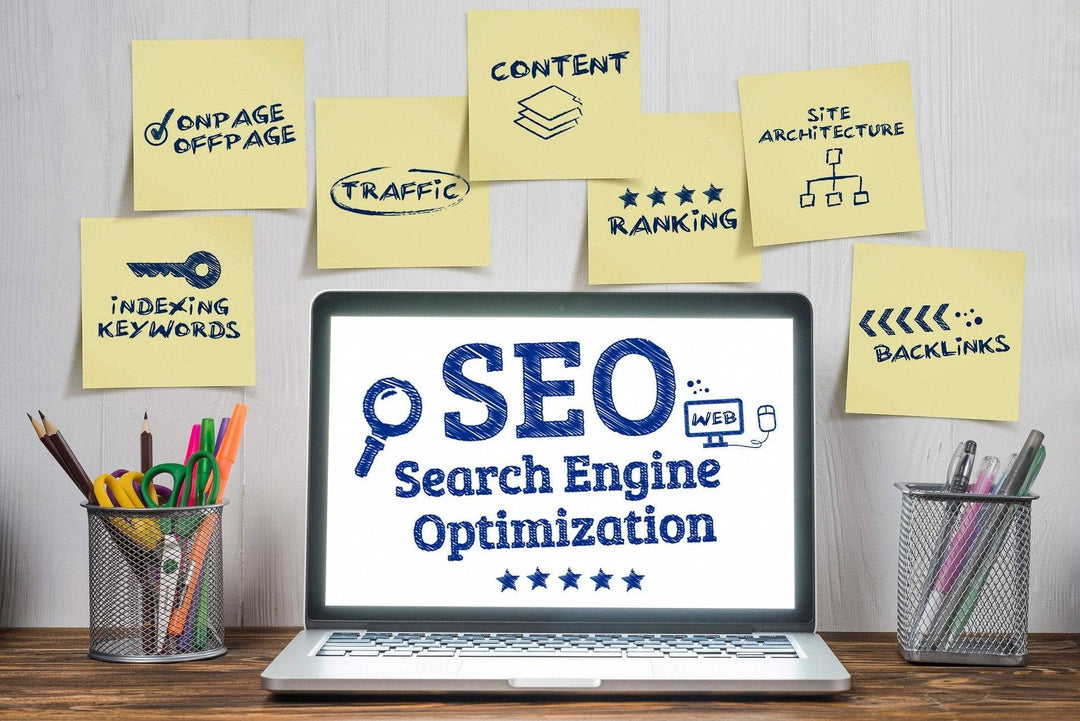Introduction
In today's competitive eCommerce landscape, having a well-optimized Shopify store is crucial for driving traffic and increasing sales. One of the most effective ways to achieve this is by leveraging local store SEO strategies tailored to your business. Whether you're a small boutique or a growing online retailer, optimizing your Shopify store for search engines can significantly improve visibility, attract the right audience, and boost conversions. This guide explores the top Shopify SEO services that can help you dominate search rankings and maximize your eCommerce success.
Did you know that 93% of online experiences begin with a search engine? This statistic highlights the importance of SEO in capturing potential customers. Additionally, 46% of all Google searches are local, making local store SEO a critical component for eCommerce businesses targeting specific geographic markets. By implementing the right SEO strategies, you can ensure your Shopify store ranks higher, drives organic traffic, and ultimately increases revenue.
Why Shopify SEO Matters for Your Ecommerce Business
Shopify is a powerful platform for building and managing online stores, but without proper SEO, your store may struggle to attract organic traffic. SEO helps your store appear in search engine results when potential customers look for products or services you offer. This visibility is essential because 75% of users never scroll past the first page of search results. If your store isn't optimized, you're missing out on a massive opportunity to connect with buyers.
Moreover, SEO isn't just about ranking higher—it's about attracting the right audience. By optimizing for relevant keywords, improving site speed, and enhancing user experience, you can ensure that visitors who land on your store are more likely to convert. This is where professional eCommerce SEO services come into play, offering tailored solutions to elevate your store's performance.

Onsite Optimization: The Foundation of Shopify SEO
Onsite optimization is the backbone of any successful SEO strategy. It involves optimizing your Shopify store's structure, content, and technical elements to improve search engine rankings. Key components include keyword research, meta tags, URL structures, and internal linking. For example, targeting the right keywords ensures your store appears in relevant searches, while a clean URL structure makes it easier for search engines to crawl and index your pages.
Here’s a quick breakdown of essential onsite optimization tasks:
| Task | Importance |
|---|---|
| Keyword Research | Identifies high-intent keywords to target |
| Meta Tags Optimization | Improves click-through rates from search results |
| Internal Linking | Enhances site navigation and SEO performance |
Keyword Research: Finding the Right Terms to Target
Keyword research is the first step in any SEO campaign. It involves identifying the terms and phrases your target audience uses when searching for products like yours. Effective keyword research focuses on three main criteria: search volume, competition, and purchase intent. High search volume keywords attract more traffic, while low competition keywords are easier to rank for. Most importantly, keywords with strong purchase intent indicate that users are ready to buy.
For example, if you sell handmade jewelry, targeting "handmade silver rings near me" could be more effective than a generic term like "jewelry." The former has a higher likelihood of attracting local buyers ready to make a purchase. Tools like Google Keyword Planner, SEMrush, and Ahrefs can help you uncover these valuable keywords for your Shopify store.
Content Optimization: Creating SEO-Friendly Product Pages
Your product pages are the heart of your Shopify store, and optimizing them for SEO is essential. This includes writing compelling product descriptions that incorporate target keywords naturally, using high-quality images with alt text, and ensuring fast load times. A well-optimized product page not only ranks higher but also provides a better user experience, increasing the chances of conversion.
Additionally, blogging can significantly boost your SEO efforts. Publishing regular, keyword-rich blog posts related to your products or industry can drive organic traffic and establish your store as an authority. For instance, a store selling fitness equipment could publish articles like "Top 10 Home Workout Routines" to attract fitness enthusiasts searching for related content.
Technical SEO: Enhancing Your Store’s Performance
Technical SEO focuses on improving the backend elements of your Shopify store to enhance search engine visibility. Key aspects include mobile-friendliness, site speed, structured data markup, and fixing broken links. Since mobile devices account for over 50% of global web traffic, ensuring your store is mobile-optimized is non-negotiable.
Another critical factor is site speed. Slow-loading pages frustrate users and increase bounce rates, negatively impacting your rankings. Tools like Google PageSpeed Insights can help you identify and fix performance issues. Implementing structured data markup, such as product schema, can also enhance how your store appears in search results, potentially increasing click-through rates.
Local SEO: Attracting Nearby Customers
For brick-and-mortar stores or businesses serving specific regions, local store SEO is a game-changer. It involves optimizing your Shopify store to appear in local search results, such as "coffee shops near me." Key tactics include claiming your Google My Business listing, optimizing for local keywords, and collecting positive customer reviews.
Local SEO also extends to ensuring your store's name, address, and phone number (NAP) are consistent across all online directories. This consistency helps search engines verify your business's legitimacy, improving your chances of appearing in local searches. Additionally, encouraging satisfied customers to leave reviews can enhance your store's credibility and attract more local buyers.
Link Building: Boosting Your Store’s Authority
Link building is a crucial offsite SEO strategy that involves acquiring backlinks from reputable websites. These backlinks act as votes of confidence, signaling to search engines that your store is trustworthy and authoritative. High-quality backlinks can significantly improve your rankings and drive referral traffic.
Effective link-building tactics include guest blogging, influencer collaborations, and creating shareable content like infographics or guides. For example, partnering with a fashion blogger to review your products can earn you a valuable backlink from their site. However, it's essential to focus on quality over quantity—links from spammy or irrelevant sites can harm your SEO efforts.
Measuring Success: Tracking Your SEO Performance
To ensure your SEO efforts are paying off, it's crucial to track key performance metrics. Tools like Google Analytics and Google Search Console provide valuable insights into your store's traffic, rankings, and user behavior. Monitoring these metrics helps you identify what's working and where improvements are needed.
Some essential metrics to track include organic traffic, bounce rate, conversion rate, and average session duration. For instance, a high bounce rate may indicate that your product pages aren't meeting user expectations, prompting you to revise your content or design. Regular reporting and analysis allow you to refine your strategies and achieve long-term SEO success.
Conclusion
Optimizing your Shopify store for search engines is a multifaceted process that requires a strategic approach. From onsite optimization and keyword research to local SEO and link building, each component plays a vital role in boosting your store's visibility and sales. By leveraging professional eCommerce SEO services, you can implement these strategies effectively and stay ahead of the competition.
Remember, SEO is an ongoing effort—search engine algorithms evolve, and consumer behaviors change. Staying updated with the latest trends and continuously optimizing your store will ensure long-term success. Start implementing these Shopify SEO services today, and watch your eCommerce sales soar.
Frequently Asked Questions
-
How long does it take to see results from Shopify SEO?
SEO is a long-term strategy, and results can vary depending on competition and effort. Typically, you may start seeing improvements in 3-6 months, but significant gains often take 6-12 months of consistent optimization. -
Can I do Shopify SEO myself, or should I hire a professional?
While basic SEO can be done independently, hiring a professional ensures comprehensive optimization and faster results. Experts have the tools and knowledge to tackle technical aspects, advanced keyword research, and link-building strategies effectively. -
How important is mobile optimization for Shopify SEO?
Extremely important. With over half of web traffic coming from mobile devices, Google prioritizes mobile-friendly sites. A responsive design and fast load times on mobile are critical for ranking well and providing a positive user experience.






Leave a comment